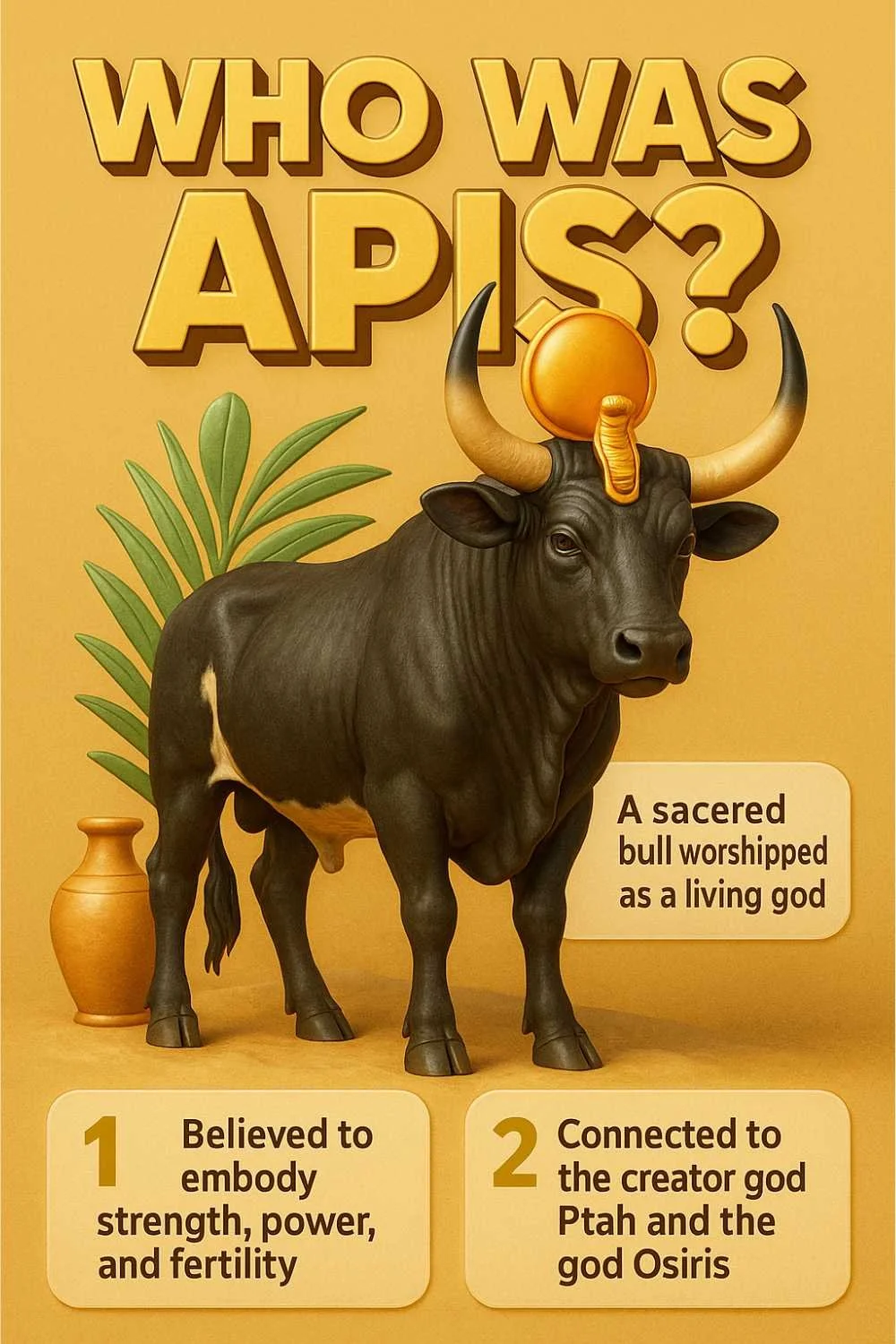What the Fifth Plague of Egypt Teaches About Trusting God
The Fifth Plague of Egypt — When False Strength Failed
When disease struck Egypt’s livestock, the impact was immediate and devastating.
Animals that symbolized power, wealth, and even divinity fell lifeless in the fields — while in Goshen, not a single animal was harmed.
This plague wasn’t just about livestock.
It was about truth rising, idols falling, and a God who still knows how to set His people apart.
In this blog post, we’ll explore:
What life in Egypt looked like after the swarms of flies
How the Fifth Plague devastated Egypt’s animals — but not Israel’s
Which Egyptian gods this plague challenged, including Hathor and Apis
The science of livestock disease and why Goshen’s protection was miraculous
How this plague points to Jesus, the Good Shepherd who lays down His life for His sheep
Egypt Unraveling
The Nile had turned to blood. Frogs invaded homes. Gnats and flies had stripped the land of peace. But Pharaoh’s heart was still hard — and his pride still strong.
Then came the next warning.
“The hand of the Lord will bring a terrible plague on your livestock in the field…”
(Exodus 9:3)
For a nation built on power, wealth, and livestock, this was unthinkable.
In Egypt, animals weren’t just useful — they were sacred. Oxen plowed the fields. Donkeys hauled loads. Cattle produced milk and meat. And many animals, especially bulls and cows, were even worshiped as gods.
But as the sun rose over the dusty pastures, the unthinkable happened.
Egypt’s animals began to fall.
One by one, the fields filled with the bodies of horses, donkeys, camels, cattle, sheep, and goats.
Lifeless. Motionless. Silent.
It was more than economic ruin — it was a spiritual collapse. The gods of strength, provision, and fertility had failed.
But in Goshen Where the Hebrews Lived?
Peace.
The Hebrews’ animals grazed safely in the sun. Not one had died.
While Egypt mourned its losses, the people of God witnessed a quiet miracle — one that reminded them they were set apart not by their power, but by God’s mercy.
This moment wasn't just about animals.
It was about truth being revealed. It was about spotting weeds of untruth sown through centuries of idol worship.
And it was a moment for God’s people to begin growing confident in their faith — watching Yahweh stand strong while false gods fell silent.
False Gods Fall — Hathor and Apis Defeated
Egypt didn’t just rely on livestock — they revered it.
Cows and bulls were symbols of strength, prosperity, and divine favor.
Owning cattle meant you were living the good life — more animals, more wealth, more status. Bulls were symbols of strength and power, and cows were considered nurturing, life-giving providers.
These weren’t just barnyard creatures — they were walking blessings, believed to bring favor from the gods.
So when God sent a plague that struck only the animals of the Egyptians, it was a direct assault on two of their most beloved deities:
Hathor — The Cow Goddess of Love and Motherhood
Often depicted as a woman with cow horns and a sun disk between them.
She was worshiped as the goddess of joy, fertility, and protection.
She was called the “Mother of Cattle.”
Egyptians believed Hathor blessed their livestock and ensured healthy families, both human and animal.
But when the animals began to die in the fields, Hathor was silent.
No rituals stopped the plague. No temple sacrifice brought relief.
What the Egyptians once called sacred was now lifeless in the dirt.
Apis — The Sacred Bull of Strength and Power
For some animals, they were extra special. If a baby bull was born with the right patterns or markings, priests might declare it a sacred Apis bull — a living god in the flesh! That bull would be pampered like royalty, paraded in rituals, and worshiped in temples.
Apis was believed to be a living god, chosen from among cattle and worshiped in life and death. He symbolized physical strength, royal authority, and divine presence.
Pharaoh himself was often associated with Apis, believing he ruled with divine might. Yet Pharaoh could do nothing to stop the destruction.
His connection to Apis meant this plague struck at his own identity and authority.
God wasn’t just attacking livestock — He was revealing lies.
The animals Egyptians trusted for survival were taken in a day.
And the gods they trusted to protect them were powerless to intervene.
When God sent a plague that wiped out Egypt’s prized livestock, it wasn’t just a food crisis… it was a faith crisis. In one devastating day, God showed that even Egypt’s sacred cows couldn’t stand against His truth.
As we help our kids learn to spot weeds of untruth, stories like this remind us:
No false god can stand before the Lord.
No idol can deliver what only God provides.
And when we are Rooted in Truth, we can recognize what’s real — even when the world says otherwise.
The Science Behind the Fifth Plague — When Livestock Fall
The Fifth Plague wasn’t just a spiritual blow — it was an agricultural and ecological disaster.
God told Moses that a “terrible plague” would strike the animals of Egypt — and it did, with devastating impact.
But what kind of plague was it? And how does science help us understand the magnitude of what happened?
Infectious Disease in Livestock
Many scientists believe the livestock plague could have been caused by a highly contagious animal disease, such as:
Anthrax – a bacterial infection that spreads quickly and causes sudden death in cattle, sheep, and goats.
Rinderpest – a viral disease that historically wiped out entire herds with fever, diarrhea, and respiratory failure.
Foot-and-mouth disease – spreads rapidly, especially in densely packed herds.
These types of diseases:
Spread fast in warm climates
Thrive where animal corpses, waste, and flies are present (like Egypt after the previous plagues)
Can travel through air, insects, or contaminated water
This creates a perfect picture of what Egypt had become: A land primed for biological collapse.
The Role of Livestock in Egyptian Life
Livestock in ancient Egypt were essential for:
Farming (plowing fields, hauling carts)
Trade (livestock were wealth)
Food (milk, meat, and sacrificial offerings)
Religious worship (especially sacred bulls and cows)
When the animals died:
Work stopped
Fields went unplowed
Food supplies dropped
Religious systems crumbled
The plague didn’t just kill animals — it paralyzed the nation.
Goshen’s Protection — A Supernatural Divide
Here’s where it gets even more remarkable:
“But the Lord will make a distinction between the livestock of Israel and that of Egypt, so that no animal belonging to the Israelites will die.”
(Exodus 9:4)
From a scientific standpoint, this makes no sense:
Infectious diseases don’t respect borders.
If the same flies and water sources were shared, Hebrew livestock should’ve died too.
But they didn’t.
This was no ordinary outbreak — it was targeted, timed, and divinely directed.
God didn’t just allow disease. He used it to show His power over creation, and to prove to both Egypt and Israel that He alone is Lord.
This plague shows us what happens when the systems people trust collapse, and how only God can protect what matters most.
It’s a reminder for our kids (and us!) that even when the world falters, God’s care is constant.
From Fallen Herds to the Faithful Shepherd
The Fifth Plague left Egypt shaken.
Fields once full of movement were now still. The strength of Egypt had fallen silent.
But in Goshen?
The grass was still green. The herds still grazed. The people of God watched, once again, as the Lord made a distinction between those who served Him and those who opposed Him.
Not because they were better. Not because they were perfect. But because they were His.
This moment points forward to something greater — to the One who would not only protect the flock, but lay down His life for it.
“I am the Good Shepherd. The good shepherd lays down His life for the sheep.” (John 10:11)
In Egypt, animals died to show that false gods could not save.
In the Gospel, Jesus died to prove that He can.
Where Pharaoh hardened his heart, Jesus offers us a new one.
Where Egypt’s gods failed to protect, Jesus steps in and saves.
Where the plague brought death, Jesus brings abundant life.
Rooted in Truth, Safe in His Care
As we help our kids explore these stories, we’re doing more than teaching Bible facts. We’re helping them stay Rooted in Truth, spot weeds of untruth, and grow confident in their faith.
The Fifth Plague reminds us that the gods of this world cannot protect us — but the God who made us can.
And He already has — through Jesus, our Good Shepherd, who leads, provides, and never fails
Ready to Explore the Plagues in a Hands-On Way?
Looking for a fun, interactive way to help your children engage deeply with the Ten Plagues?
Perfect for Homeschool, Sunday School, or family discipleship time. Bring the Exodus story to life — one puzzle, one truth, one plague at a time.
Plagues of Egypt Bible Escape Room
If your kids love learning through hands-on fun and adventure, be sure to check out my Plagues of Egypt Bible Escape Room! Your family will have a blast solving puzzles and watching God defeat an Egyptian deity for each plague — all while staying Rooted in Truth and Growing in Curiosity.




